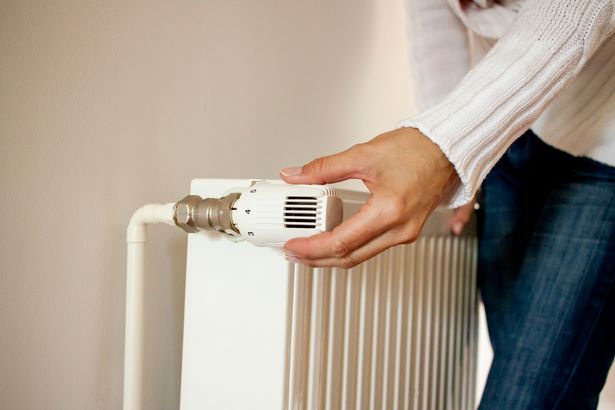
It has been a cold and not very pleasant winter and many of us have used hundreds of blankets and sent our heating temperatures soaring to keep us warm.
But this results in larger heating bills, and the warmer months are still just a smidge too far to be wishing for the sun.
Although we are still probably counting down the days anyway, right?
However, thanks to MoneySavingExpert.com founder Martin Lewis, who has become our saviour, we can now separate what is true about cost effective energy bills from the fake news.
He told The Mirror : “It’s February, the weather is freezing and we’re all turning the heat up.
“But as many will know this is expensive business, and for as long as the cold snap continues the bills will keep rising.
“So, I want to play a little game of true or false with you over a series of popular energy myths.
“See how many you get right, and give yourself a warm pat on the back if you do well, and a cold slap across your fiscal face if you get most wrong.”
TRUE OR FALSE: The cheapest way to pay energy bills is by direct debit?
True , but specifically it needs to be monthly direct debit. Then suppliers offer discounts of around 7%.
Yet, while you pay less in total, as suppliers estimate your usage, if they overestimate you could be asked for more cash – leaving you in credit – or worse, leaving you underpaying, and in debt with them.
Ensure you always give regular meter readings to get accurate bills.
Also, if you think the estimate is wrong, you have the right to challenge.
TRUE OR FALSE: It’s cheaper to leave the heating on low all day rather than have it turned off and on?
False(ish) . Just pay to pump energy in as and when it is needed. To keep pumping it in constantly isn’t efficient.
Using a timer is best, because your thermostat is designed to turn your heating on and off to keep your home at the temperature you set it.
This is the view of both the Energy Saving Trust and British Gas, so in general I’d stick with that.
Yet some heating engineers argue that keeping all the radiators on full but with the boiler down can reduce condensation. Whereas on and off can make it worse.
As condensation helps conduct heat outside the home – you lose heat more quickly and will use more energy as a result. If your house is prone to condensation, you may want to think about it.
TRUE OR FALSE: Renters can’t switch energy provider without their landlords’ permission?
False . You have a right to switch energy provider in your home even if you only pay the rent.
There are two exceptions to this:
If you don’t pay for energy yourself, it’s all included in your rent;
If you’re looking to switch meter, eg. from prepayment to a credit meter, as that’s a physical change to the property that needs permission.
So feel free to do a comparison. Just enter your details into my cheapenergyclub.com or any other ofgem.co.uk approved comparison site and it’ll tell you the best deal for you.
Just make sure you select “all tariffs” as some comparison sites now default to only show you the ones that will pay them (my cheap energy club doesn’t do this).
If the landlord says it’s written into your contract that you can’t switch, challenge it. Preventing a tenant from changing energy suppliers may be viewed as an unfair term in a tenancy agreement.
TRUE OR FALSE: If you are in credit when you switch energy provider they must give you the money back?
True (for now, anyway). If you pay by direct debit and when you leave an energy firm you’re in credit, then since 2014 you should automatically get this back. But track it and if the supplier doesn’t, call it and ask for the cash.
If you switched before 2014 and think you might have been in credit, then call to check if they operated a “don’t ask don’t get policy”.
Like Aston who emailed me: “Eight minutes work calling my old energy suppliers, got £140 refunded after leaving in credit. Why don’t more people do this?”
TRUE OR FALSE: If you are in credit when you switch energy provider they must give you the money back?
True (for now, anyway). If you pay by direct debit and when you leave an energy firm you’re in credit, then since 2014 you should automatically get this back. But track it and if the supplier doesn’t, call it and ask for the cash.
If you switched before 2014 and think you might have been in credit, then call to check if they operated a “don’t ask don’t get policy”.
Like Aston who emailed me: “Eight minutes work calling my old energy suppliers, got £140 refunded after leaving in credit. Why don’t more people do this?”
False . Many energy firms use our fear of losing heating to charge hefty insurance costs. They also want us to think there’s some link between our energy provider and our boiler cover.
There isn’t – you’re not locked in, so if you do need it, go elsewhere, like Amanda who emailed: “I swapped my boiler cover company and saved £213 a year whilst also increasing cover – and still with an annual service included. Thanks.”
You can choose between boiler-only or central heating cover and to find the cheapest cover use a comparison site such as uswitch.com , energyhelpline.com and moneysupermarket.com . If it’s right for you, get cover ASAP, before the true cold weather kicks in, as almost all new policies have a no-claims period within the first 14-30 days.